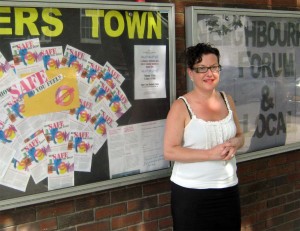
Did you know that within a one-mile radius of the ornate spires of St Pancras, you’ll find probably the highest concentration of brainy organisations anywhere in the world?
Some you’ll be totally familiar with, such as the British Library, or the University of London. Others might not be on your radar, like dance school The Place or the diminutive Foundling Museum. And others still are yet to arrive, including research centre, the Francis Crick Institute, and Google’s vast futuristic HQ.
So where once King’s Cross teemed with the interchange of heavy industry, today it abounds with the exchange of information and ideas. It’s a microcosm of the age, where a communications explosion has opened up access to human knowledge on an unprecedented scale.
Over the next few weeks, we’ll look at how the area is rapidly changing to accommodate and celebrate this bold new era. And things have only just begun to get interesting. But there is much work to be done to ensure we put society’s new digital interconnectedness to most effective – and egalitarian – use.
LOCAL ADVERTISING
One such initiative is the formation of what they’re now calling the Knowledge Quarter. It’s a growing collection of local organisations – within that mile radius of St Pancras – that loosely share a common focus: the advancement and dissemination of particular knowledge.

It’s humbling to think that, until relatively recently, access to a broad-range of knowledge was the preserve of the fortunate few.
Now that the internet has crammed a large chunk of it into an ever-smaller device in our pocket, the problem has become making sense of it all. We strive to ensure these new tools accelerate, rather than drown, our collective abilities to learn and improve.
Knowledge Quarter encompasses institutions from both science and the arts, invites equal membership from global corporations through to community groups, and aims to unite all the talented creative types, business heads and charity workers beavering away in the area under a shared cause. Ambitious, indeed.
As well as supporting each other, there is an emphasis on forging alliances with the community that have lived in the area since long before it started being comprehensively scrubbed up, too. Therefore you’ll now find established giants like the Wellcome Trust rubbing shoulders up alongside vital local-level lifelines such as Somers Town Community Association.
Promoting the idea of the Knowledge Quarter in this part of London helps fuel the phenomenal regeneration process that continues all around, and puts the postcode on the map for curious visitors. But aside from the obvious local business gains, the ultimate benefit of the KQ is for society at large. It may be a new concept, but it’s helping to focus and connect talent right here, right now. Amazing things are guaranteed to follow.
KQ #1. Somers Town Community Association, Sarah Elie, Executive Director

What’s your story?
We are a ‘community anchor’ in the heart of Somers Town, with a thirty-year history of serving generations of residents. Our goals are to give voice to those that need to be heard, to be responsive to local need, to be driven by local ideas and to build a sustainable future for our much needed services, and the community we serve.
What hopes do you have for Knowledge Quarter?
That it believes in what it says it will achieve and doesn’t short-change itself, or the communities it resides within. By actively participating ourselves, we hope to open up new avenues of opportunity for residents.
What excites you most about all this?
That we might actually break down the barriers to knowledge and therefore open up a new dawn in opportunity for those previously left standing outside.
Knowledge is?
Opportunity. Something I’d very much like to see available and accessible to all.
Soon the existing wealth of resources, from the venerable old universities to quirky newcomers like pop psychology shop the School of Life, will be joined by a rash of exciting, world-beating facilities.
The Guardian are currently building a focal point for events, talks and conversations in the grand Grade II listed Midland Goods Shed, up by Granary Square. It will become the natural hub for their innovative membership scheme and live programme when it opens in 2017.
Nearby, just across the brand new Lewis Cubitt Square, is the site earmarked for the relocation of Aga Khan University from its current Euston Rd site. That will include a 4.5 acre campus and a rumoured-to-be stunning new Islamic cultural centre and gallery.
Showing that partnerships are in the area’s DNA, the likes of UCL and Wellcome Trust are working together on the Francis Crick Institute, the sweeping, nearly-complete building behind the British Library. That’s soon to begin life as the world’s foremost biomedical research centre, for 1,400 scientists.
And that’s not to mention the coming of Google, when they can decide on just how knock-yer-socks-off their own building (already earmarked to be a ‘horizontal skyscraper’, among the longest in Europe) is going to be.
We will meet people from seven very different member organisations (see #1, above), including world famous educational institutions, charities, community groups and museums. All share the same feeling of optimism and possibility as we ask them what the transformation of King’s Cross means to them – and for their own definition of knowledge itself.
Next week: meet the head honcho at the Wellcome Collection


